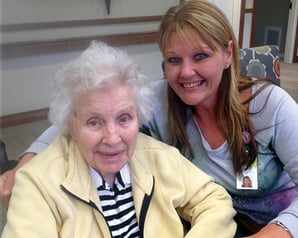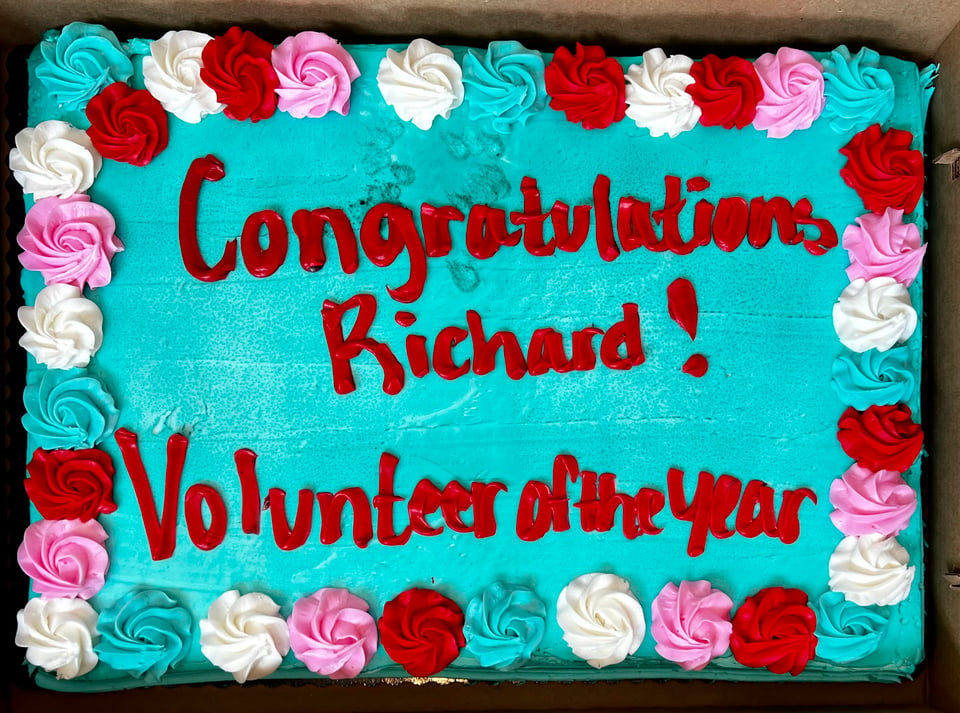 According to the Alzheimer’s Association, 69,000 Iowans age 65 and older were living with Alzheimer’s disease in 2010. By 2025, that number is expected to reach 77,000--with an estimated 78 percent of people in long-term care having some level of cognitive impairment.
According to the Alzheimer’s Association, 69,000 Iowans age 65 and older were living with Alzheimer’s disease in 2010. By 2025, that number is expected to reach 77,000--with an estimated 78 percent of people in long-term care having some level of cognitive impairment.
As a leader in health and well-being services for older persons throughout the state of Iowa, WesleyLife launched an initiative to define, develop and implement a best-in class memory support program in late 2012.
“We knew even before starting, the passion and dedication of team members working with memory support residents was amazing,” says Nancy VanWyk, RN, and Certified Dementia Practitioner at Hearthstone.
One important result of the initiative was a commitment to finding new ways to ease distress for residents experiencing dementia. While psychoactive medications are widely used in the U.S. to manage these behaviors, research shows these drugs can have major side effects, including drowsiness and decreased alertness. For many, drugs may set off a domino effect. People who sleep more tend to have less physical activity and fewer social interactions, which leads to a loss of independence and human contact. Drug-related dizziness and confusion also can create balance issues, including falls. The combination of increased falls, social withdrawal and decreased ability to manage daily living activities could even lead a person to require more care.
“We’ve seen a decrease in the use of psychoactive drugs among memory support residents, and we’re seeing an increase in physical activity among those residents,” says Susan Johnson, WesleyLife Director of Process Improvement and co-facilitator of the group. “This is extremely important as
it restores independence and maintains—or even improves—the mind, body and spirit of residents, ultimately enhancing their daily life and relationships with family and friends.”
This initiative was identified by work teams involving more than 30 team members representing all seven WesleyLife communities. The group identified nine areas of opportunity to enhance the quality of life of older persons with memory loss. Other recommendations included:
- Increasing educational opportunities for team members, physicians and the general public;
- Increasing volunteer engagement with residents, and
- Creating stimulating brain fitness programming.
The recommendations were announced in July 2013 and are being implemented in all communities. Johnson, and WesleyLife Director of Organizational Learning and group co-facilitator, Judy Palko, are scheduled to present their findings at the LeadingAge annual meeting in Nashville, Tenn., in mid-October.
Brain Health Program Expands Statewide
As part of the initiative, WesleyLife sought opportunities to increase stimulating brain fitness programming. WesleyLife was awarded a Quality Improvement Initiative grant from the Iowa Department of Human Services, Iowa Medicaid Enterprise (IME) to expand the use of Dakim BrainFitness from one WesleyLife community to all seven. Dakim BrainFitness is a scientifically based, structured brain-training program that crosstrains the brain in six essential cognitive domains to improve memory now and protect brain health long-term. It can help revitalize mental acuity and
has been shown in a clinical trial to improve memory and strengthen attention, focus and concentration.
While the Dakim technology is being warmly received by residents and team members, a small unexpected and positive surprise has been the increased participation in other social programs by residents.
“What we’ve witnessed at The Village is residents who typically didn’t join in conversation or social programming before using Dakim are now participating in other programming,” says Gay Puthoff, Resident Life Coordinator at The Village.
“Dakim also gives us another way to learn about the resident and connect with him or her.”

.png?width=960&length=960&name=Blog%20Feature%20Images%20(8).png)
